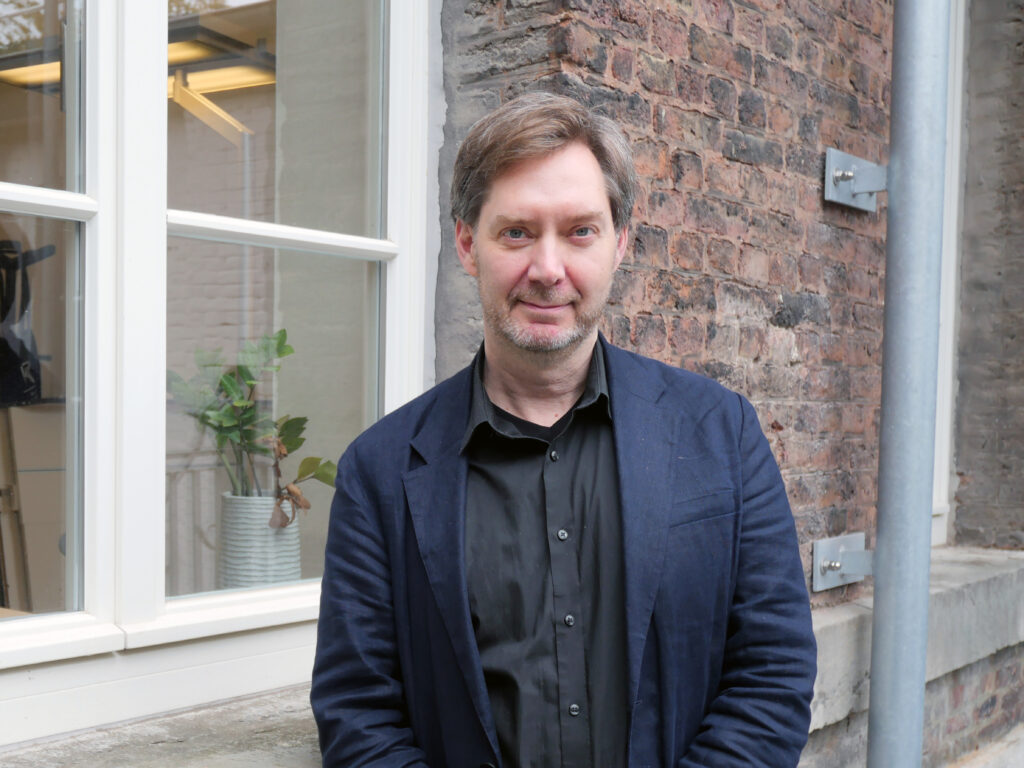c:o/re Fellow 04/25 – 03/26

Bernd Bösel is a philosopher and media scholar. His main area of research are the technical and digital operationalization of affect and emotions, as well as media theory and philosophy of technology. He is co-speaker of the AG “Affective Media Technologies” within the German Society for Media Studies. From April 2024 to March 2025, he represented the chair of media theory at the University of Potsdam. Prior to that, he was the scientific coordinator of the Forschungskolleg “Sensing: The Knowledge of Sensitive Media” (ZeM Potsdam).
Cultures of Psychotechnological Research
Psychology, technology and the media are converging ever more closely. Nevertheless, we lack terms to address this development. My ongoing research project adopts a term from the early history of psychology that, as I will argue, can help fill that void. In 1903, William Stern proposed »psychotechnics« to demonstrate academic psychology’s public usefulness. Hugo Münsterberg subsequently popularized the term. More than a century later, this early history of psychotechnics provide us with the strongest terminological basis to designate and critically assess the contemporary computational phase of measuring and influencing psychic processes.
Instead of dismissing psychotechnics as a thing of the past, we should understand it as an umbrella term for the countless methods of measuring, instigating and influencing psychic phenomena that were developed over the course of the 20th century. Münsterberg’s grand vision of a supposedly value-free and neutral psychotechnical epistemology is in the process of being realized today. The various developments in the health sector (e.g. psychotherapy and behavioral therapy), social psychology (e.g. human relations movement), media psychology and advertisement, as well as the intelligence and military sector (e.g. ›mind control‹ research) constitute a hitherto unacknowledged second phase of psychotechnics after its earlier demise.
During my stay at the KHK, I will focus on a psychotechnological case study: the externalization of emotion regulation. Some of the current applications targeting attention or emotional engagement are developed covertly like in the case of gambling machines, while others propagate the benefit of emotion detection for persons on the autism spectrum overtly. The cultures of psychotechnological research thus differ fundamentally, which is why their respective effects both on consensual users and uninformed target subjects should be investigated more deeply.
Publications (selection)
Bösel, B. (2023). Was heißt es, über Gefühle zu verfügen? Zur genealogischen Kritik der Psychotechnik. In J. Szczepaniak, G. L. Schiewer, & J. Pociask (Eds.), Emotionen – Medien – Diskurse (pp. 9–22). Harrassowitz Verlag.
Bösel, B. (Ed.). (2022). Special Issue: Automatisierte Zuwendung: Affektive Medien – Sensible Medien – Fürsorgende Medien. AugenBlick. Konstanzer Hefte zur Medienwissenschaft 85. https://doi.org/10.5771/9783741001802
Bösel, B. (2021). Die Plastizität der Gefühle: Das affektive Leben zwischen Psychotechnik und Ereignis. Campus Verlag.
Bösel, B. (2021). Der psychotechnologische Komplex – Die Automatisierung mentaler Prozesse als demokratietheoretisches Problem. Zeitschrift für Politikwissenschaft, 32(2), 551–571. https://doi.org/10.1007/s41358-021-00283-2
Bösel, B., & Wiemer, S. (Eds.). (2020). Affective Transformations: Politics–Algorithms–Media. meson press. https://doi.org/10.14619/1655

